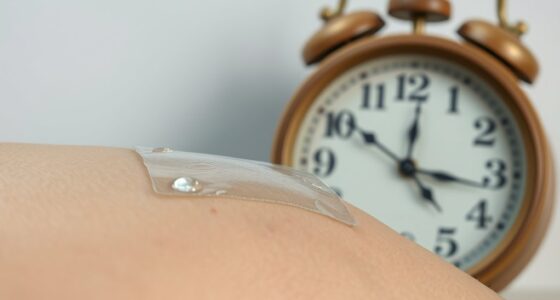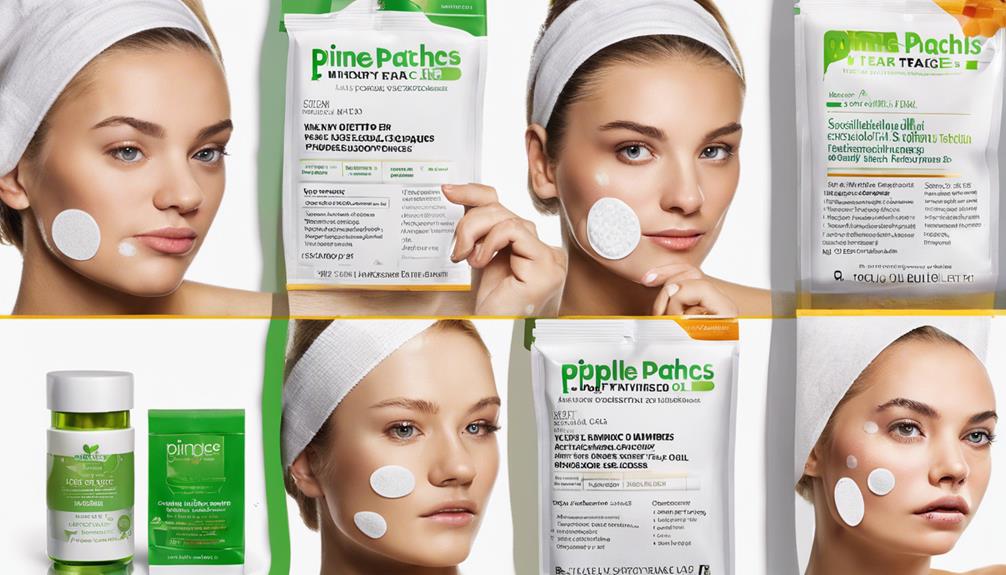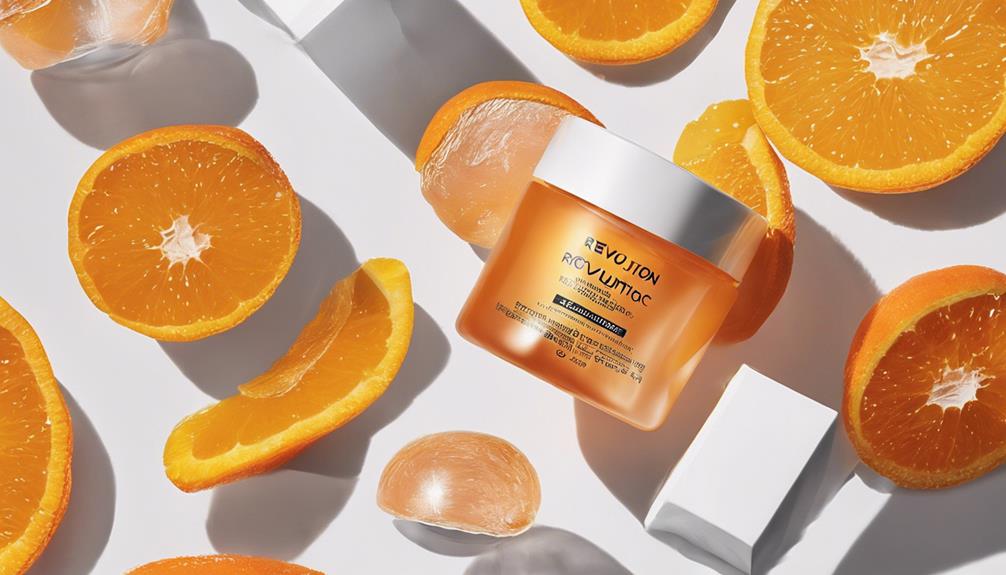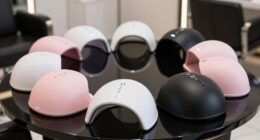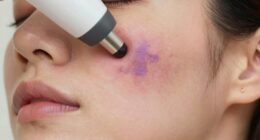Using a pimple patch on a cold sore might seem tempting, but it’s not a good idea. These patches are designed for acne, not viral infections, and lack the antiviral properties needed to fight cold sores. They can trap moisture, potentially making things worse and prolonging healing time. Instead of helping, they could lead to more discomfort and infections. To find safer and more effective treatments for cold sores, keep exploring your options.
Key Takeaways
- Pimple patches are designed for acne, not for treating viral infections like cold sores caused by HSV-1.
- Using a pimple patch on a cold sore can trap moisture, potentially worsening the condition and delaying healing.
- Pimple patches lack antiviral properties, making them ineffective against cold sores compared to specialized treatments like antiviral medications.
- Cold sores are contagious; using pimple patches improperly can risk spreading the virus and increasing infection likelihood.
- Effective cold sore management includes antiviral creams, over-the-counter treatments, and natural remedies, not pimple patches.
Understanding Pimple Patches and Their Purpose

While you might think of pimple patches solely as a quick fix for breakouts, they actually serve a more significant purpose in acne treatment.
These patches create a protective barrier over blemishes, shielding them from external irritants. Most contain active ingredients like salicylic acid or tea tree oil, which help reduce acne-causing bacteria and inflammation. This targeted approach makes them particularly effective for specific acne spots.
Hydrocolloid patches absorb excess oil, aiding in the reduction of pimple size. They’re great for surface-level pimples but less effective on cystic acne.
What Are Cold Sores and How Do They Differ From Pimples?
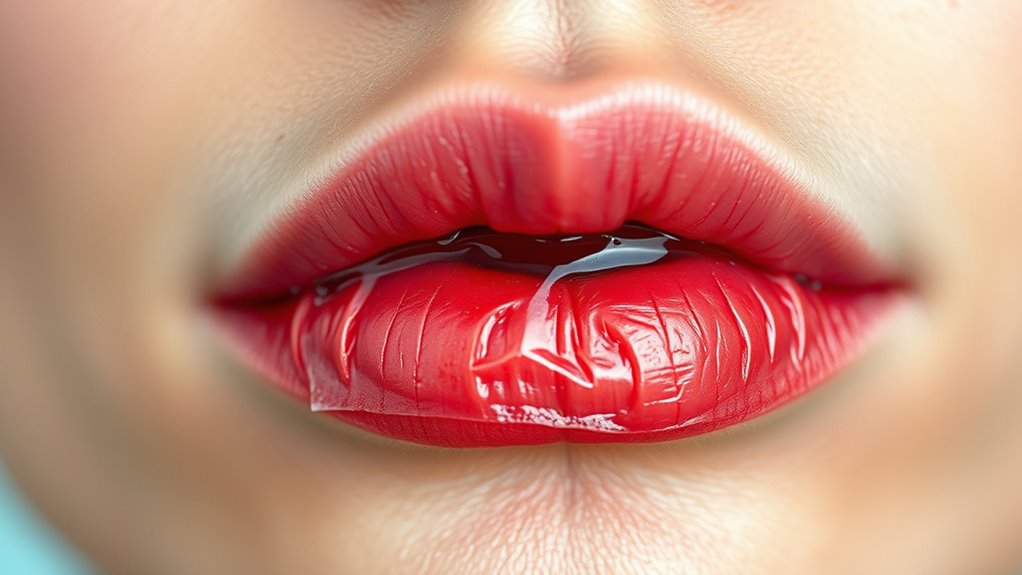
Cold sores and pimples, though both skin issues, stem from entirely different causes and exhibit distinct characteristics.
Cold sores are caused by the herpes simplex virus (HSV-1), which you can contract through direct contact or sharing personal items. They typically appear on or around your lips and often start with tingling or burning sensations before developing into painful blisters. Cold sores are contagious skin lesions that can be transmitted to others, making awareness of their presence crucial.
In contrast, pimples result from bacterial overgrowth and clogged sebaceous glands, usually appearing on your face, chest, or back. Unlike cold sores, pimples aren’t contagious.
While cold sores can resolve in two to three weeks, pimples may take varying amounts of time to heal. Understanding these differences is essential for effective treatment and prevention.
Why Pimple Patches Should Not Be Used on Cold Sores
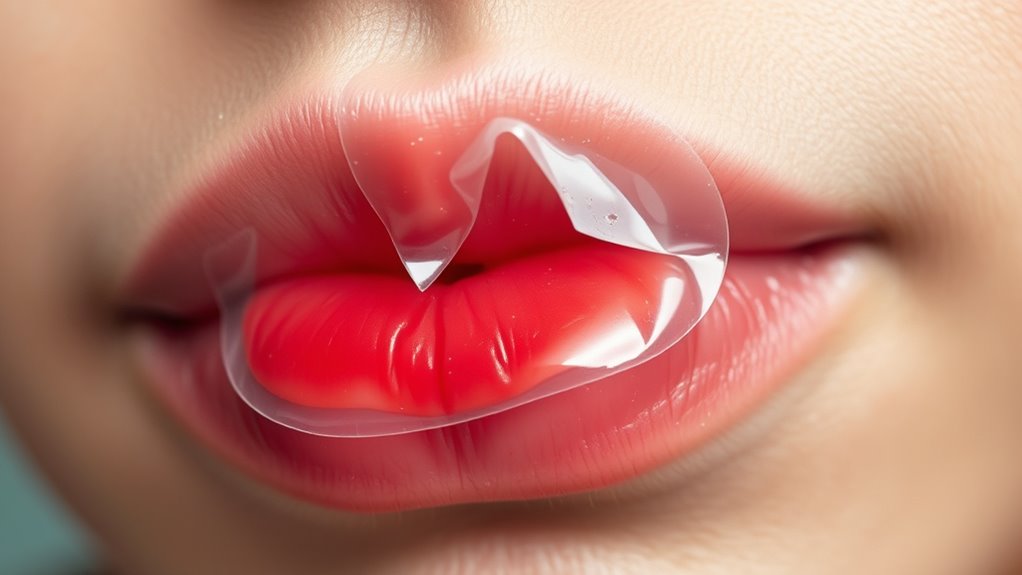
Using pimple patches on cold sores can lead to inadequate treatment, as these patches lack the antiviral properties needed to combat the herpes simplex virus. They’re designed for bacterial infections, not viral ones, which means they won’t effectively address your cold sore’s symptoms. You won’t find relief from pain or discomfort, and using them won’t reduce the contagiousness of the virus. In fact, trapping moisture with a pimple patch could exacerbate the issue, prolonging healing and increasing the risk of infection. Cold sores are contagious and you might also face discomfort from the patch itself or even allergic reactions. Instead, consider antiviral creams or natural remedies that specifically target cold sores for better results and a quicker recovery.
The Risks of Using Pimple Patches on Viral Infections
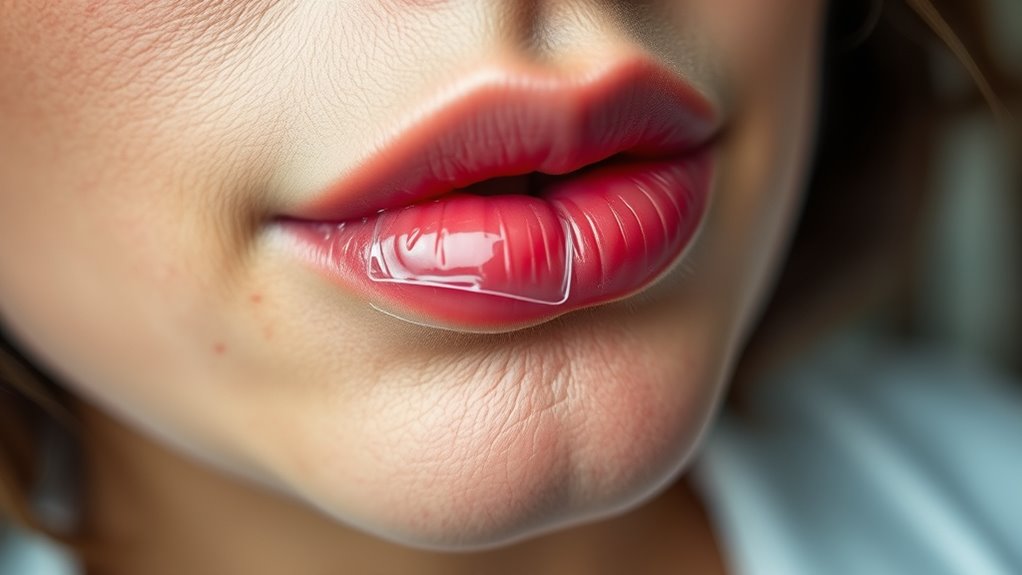
When treating viral infections like cold sores, opting for pimple patches can introduce significant risks that may worsen your condition.
Pimple patches lack the antiviral properties needed to tackle the herpes simplex virus effectively. Instead, they can trap moisture, creating an environment that promotes viral replication, prolonging healing. This can lead to increased discomfort and a higher chance of spreading the infection. Additionally, cold sores are contagious, and using these patches may confuse treatment, as they’re designed for acne, not viral issues. Furthermore, improper handling might increase contagion risks.
Pimple patches can trap moisture, worsening cold sores and increasing the risk of spreading the infection.
Without adequate antiviral treatment, you’re likely to face delayed healing and potential complications, including scarring. It’s essential to choose appropriate therapies specifically designed for cold sores to avoid these risks.
Benefits of Pimple Patches for Acne Treatment
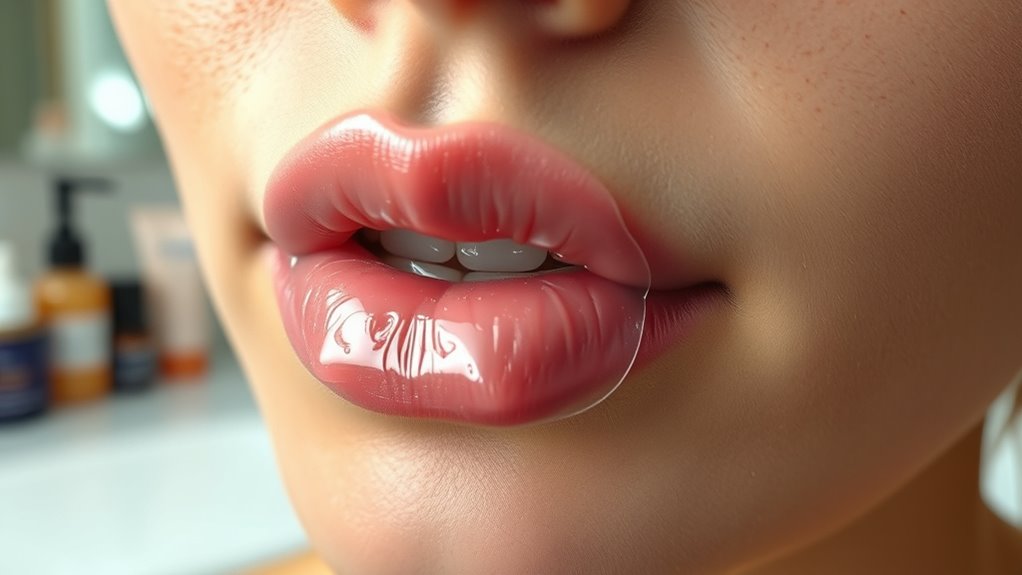
While pimple patches may not be suitable for viral infections like cold sores, they offer numerous benefits for treating acne.
These patches, often made from hydrocolloid, salicylic acid, or tea tree oil, work effectively by absorbing excess oil and impurities from your pimples. They create a protective barrier, shielding your skin from irritants and bacteria. Pimple patches are designed for targeted treatment of breakouts, making them a practical choice for managing acne. Additionally, maintaining proper hydration techniques can enhance overall skin health, complementing the effectiveness of pimple patches. Hydrocolloid technology, known for its ability to promote healing, is a key feature of many patches. Regular use of glycolic acid products can also help improve skin texture and clarity, making pimple patches even more effective.
With easy application and discreet wear, you can target specific breakouts without affecting surrounding skin. Medicated patches reduce inflammation, soothe redness, and help prevent scarring by curbing the urge to pick.
Plus, they maintain moisture, promoting faster healing. Whether you opt for hydrocolloid or medicated formulas, pimple patches can be a convenient solution for managing occasional acne flare-ups.
Effective Alternatives for Managing Cold Sores

If you’re dealing with a cold sore, knowing effective alternatives for management can make a significant difference. Antiviral medications like acyclovir or valacyclovir can reduce symptoms and healing time, especially when used early. Over-the-counter options, such as docosanol (Abreva), can also speed up recovery.
Cold compresses numb pain and reduce swelling, while aloe vera gel soothes the area. Additionally, over-the-counter creams can help reduce pain and keep the skin soft during healing. Incorporating hydrating ingredients into your skincare routine can enhance the healing process.
For natural remedies, lemon balm extract and propolis may aid recovery, and essential oils like tea tree and peppermint offer antiviral benefits. Kanuka honey is as effective as some topical medications. Additionally, lysine supplements may help manage outbreaks. By exploring these options, you can find relief and speed up the healing process.
Tips for Preventing Cold Sores
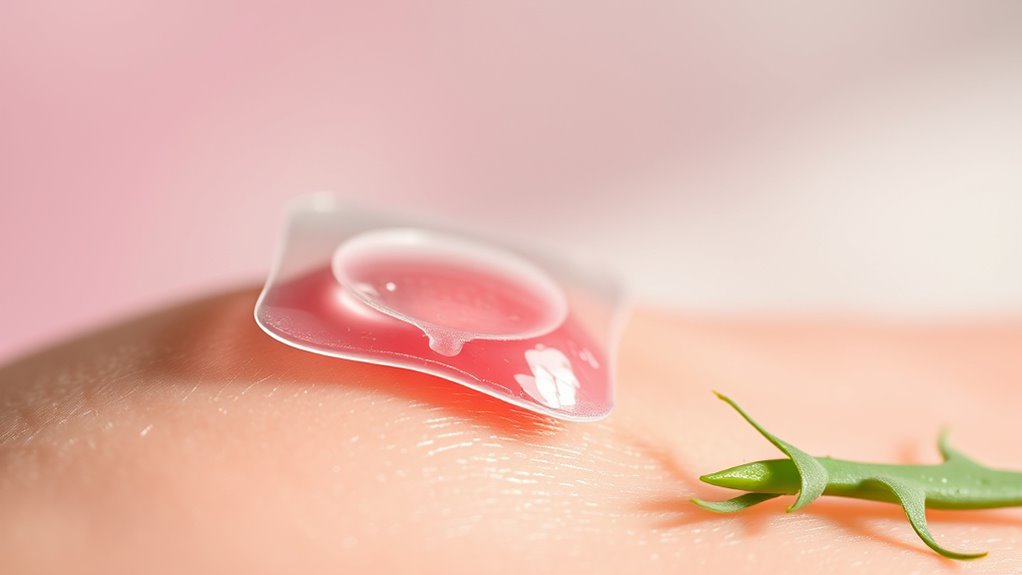
To prevent cold sores, it’s essential to adopt a proactive approach that strengthens your immune system and minimizes triggers.
Start by maintaining a healthy lifestyle—focus on a balanced diet, regular exercise, and adequate sleep to boost your immune function. Additionally, hydration and nutrition play a crucial role in supporting overall health and reducing the frequency of outbreaks. Avoid sharing personal items to prevent reinfection and use lip balm with SPF 30 or higher to protect your lips from sun exposure. Additionally, be aware that cold sores are caused by a viral infection, which means that proper hygiene is crucial to prevent their spread.
Keep track of your triggers, like stress or extreme weather, and manage them through exercise or meditation. Stay hydrated and practice good hygiene, especially handwashing.
Be mindful not to touch cold sores, and consider using antiviral treatments early to lessen the severity of outbreaks. Recognizing early symptoms can help you act quickly.
When to Seek Professional Help for Cold Sores
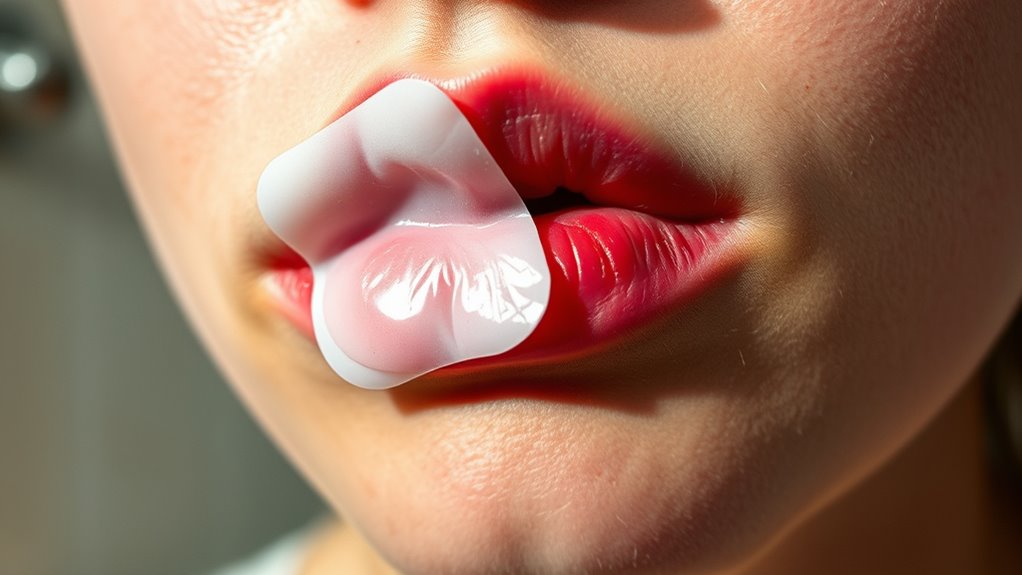
Recognizing when to seek professional help for cold sores is essential, especially if you’re experiencing frequent outbreaks or severe symptoms.
If your cold sores last longer than two weeks or you notice significant swelling, redness, or a high fever, it’s time to consult a healthcare professional. Cold sores are highly contagious, so it’s important to take precautions to prevent spreading the virus.
Cold sores near your eyes can lead to serious complications and require immediate attention.
Additionally, if you have a weakened immune system or conditions like atopic dermatitis, you should seek advice.
If over-the-counter treatments aren’t effective, prescription antiviral medications may be necessary.
Early intervention can help minimize discomfort and speed up healing, so don’t hesitate to reach out for specialized care when needed.
Frequently Asked Questions
Can Pimple Patches Be Used on Other Viral Infections?
You might wonder if pimple patches can be used on other viral infections. While these patches are effective for treating acne, they aren’t designed for viral issues.
Using them on conditions like cold sores could worsen the situation, as they lack antiviral properties. Instead, focus on antiviral medications or creams specifically made for viral infections.
Always consult a healthcare professional for the best treatment options to guarantee effective healing and avoid complications.
How Long Should I Leave a Pimple Patch On?
You should leave a pimple patch on for about 4 to 8 hours for the best results.
If you’re dealing with a severe breakout, you can extend it to 24 hours. Just keep an eye on it; once it turns opaque or white, it’s time to remove it.
For ideal healing, apply a fresh patch right after taking the old one off, especially overnight when you won’t be disturbed by daily activities.
Are There Any Side Effects From Using Pimple Patches?
You might think pimple patches are magic, clearing your skin overnight, but hold on!
They can come with some sneaky side effects. You may experience redness, irritation, or even dryness and peeling if you’re not careful.
Allergic reactions could pop up, especially if you’ve got sensitive skin.
Can I Use Makeup Over a Pimple Patch?
Yes, you can use makeup over a pimple patch!
Just make certain to apply it gently to avoid disturbing the patch. Choose liquid or powder makeup that won’t compromise the patch’s healing benefits. A matte finish concealer works best to help it blend seamlessly.
Remember to apply the patch to clean, dry skin first, and ascertain it’s fully adhered to get the most out of both the patch and your makeup.
Do Pimple Patches Expire or Lose Effectiveness?
When it comes to pimple patches, you’ve got to know that time waits for no one.
They do expire and can lose effectiveness, especially after you open them. Typically, unopened patches last up to three years, but if you notice any changes in smell, color, or consistency, it’s time to toss them.
Just remember, using expired patches can lead to skin irritation, so keep an eye on your stash!
Conclusion
In the world of skincare, using a pimple patch on a cold sore is like trying to fit a square peg in a round hole—frustrating and ineffective. While pimple patches are fantastic for zapping acne, they can’t tackle the viral nature of cold sores. Instead, focus on proven treatments and prevention strategies. Just like you wouldn’t use a band-aid for a broken bone, you need the right tools for the job to keep your skin healthy and happy.



